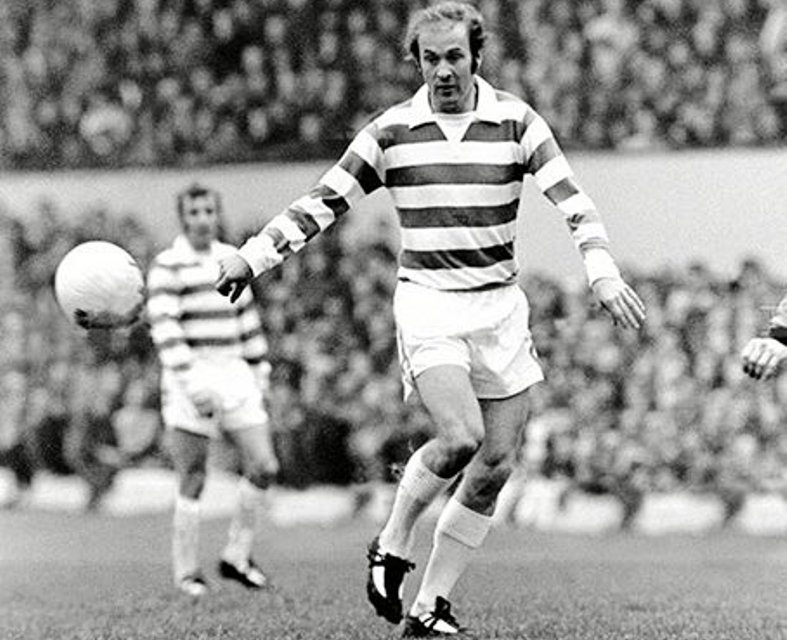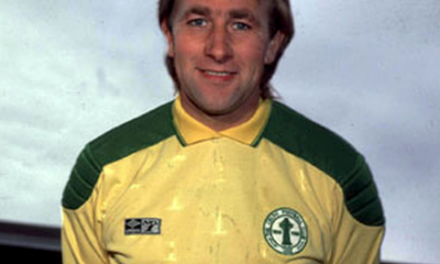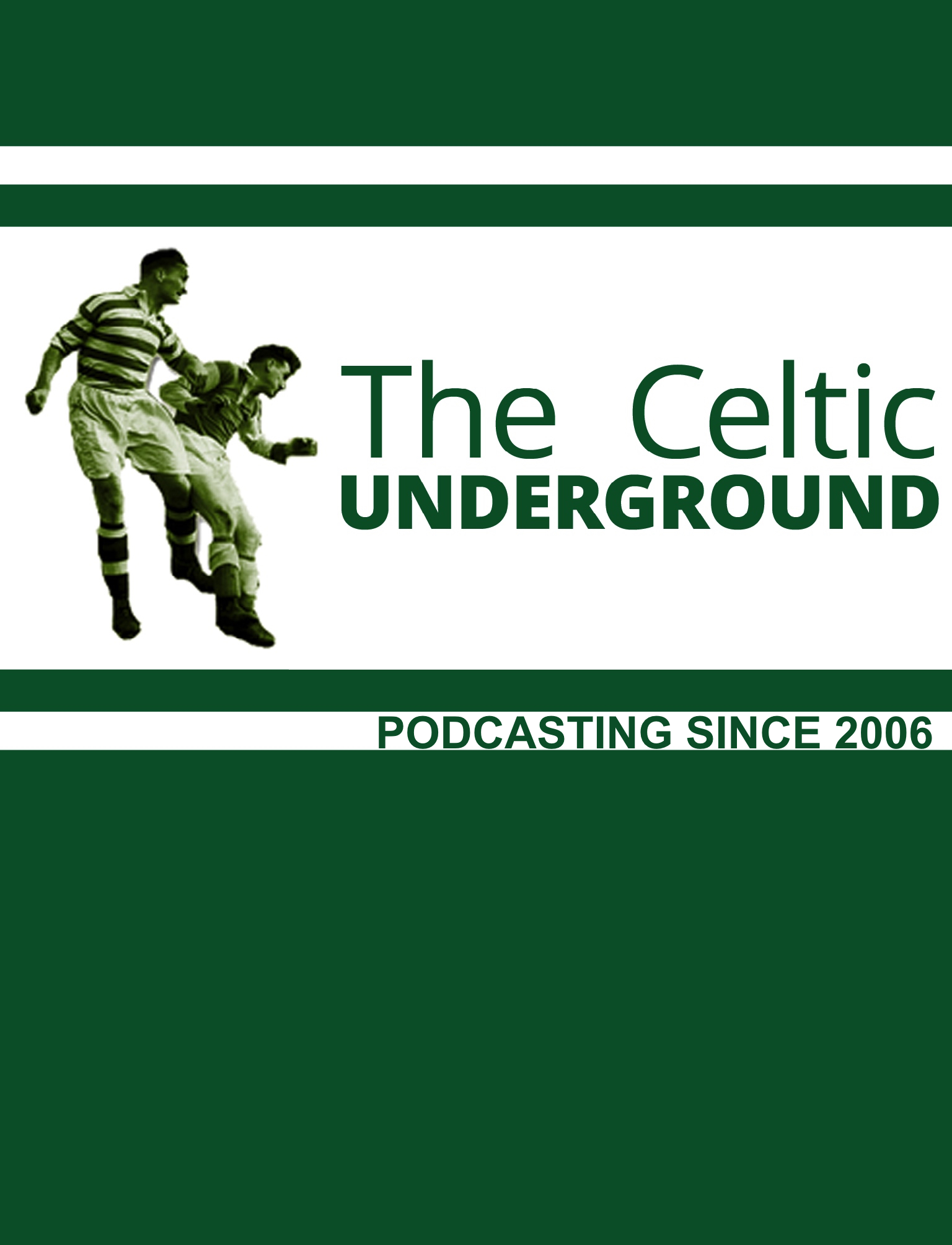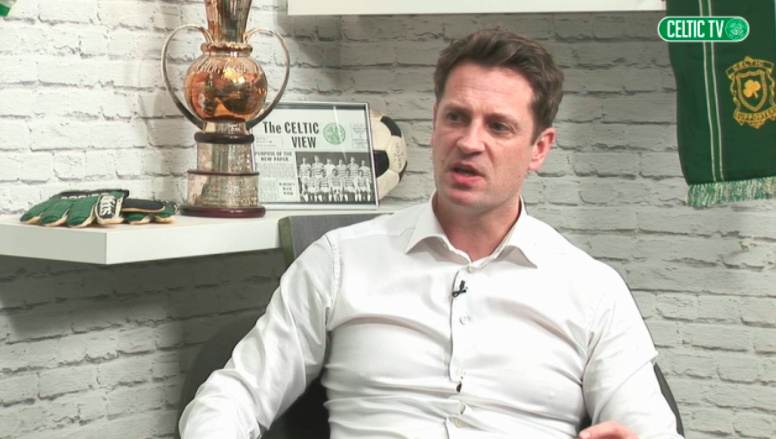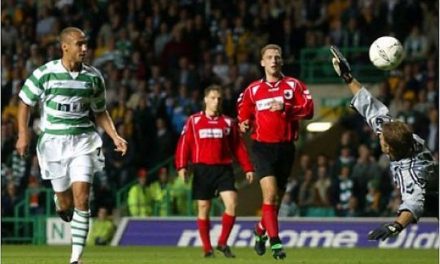Jock Stein was at his peak when he signed Harry Hood from Clyde in March 1969. Stein knew Hood would not immediately break into his great Celtic team, which was on the brink of winning the treble, but was aware that Harry would be a great asset in the years to come.
Harry’s first big success as a Celt was scoring a tremendous winner at Ibrox in September 1969 when he cleverly beat Ronnie McKinnon to leave him on his backside and then allowed John Greig to slide by as he cracked home a great shot. With both Rangers defenders lying on the deck, Harry took the salute of the Celtic fans massed behind that goal.
He won his first winners medal after a 1-0 win against St Johnstone in the League Cup final and scored important goals in the European Cup against FC Basle and Benfica. Celtic reached the final against Feyenoord in May 1970 but Harry lost his place in the side before the epic semi finals against Leeds and he would have been disappointed to have missed out on playing in that final in Milan.
The 1970/71 season was probably Harry’s best for Celtic when he finished top scorer with 33 goals. Celtic were chasing their six in a row league title and when a fine Aberdeen side under Eddie Turnbull beat them at Parkhead in December to go top they knew they had a fight on their hands. Harry responded by scoring 21 goals in 15 league and cup games in early 1971 to keep Celtic in the hunt for the double. On 17 April the league decider came at Pittodrie when Celtic had to avoid defeat or risk losing their crown. It was Harry ‘s terrific opportunist goal which gained the Celts a 1-1 draw and ensured the league trophy stayed at Parkhead. To round off a great season, Harry was Celtic’s number 9 in the Scottish Cup final and replay against Rangers. In the replay he showed great composure to score the winning goal from a penalty in front of 103,000 at Hampden and was now recognised as a vital part of the Celtic team.
It’s worth noting that Harry was the best striker in Scotland at this time but was criminally overlooked by the Scottish national team. Hugh Curran, Davie Robb and John O’Hare were chosen in the Scots’ attack at that time and it was a travesty that a player of Harry Hood’s talent was never to play international football. He certainly had the technique to impress at that level.
Harry was a mainstay in Celtic’s 9 in a row side and won further league titles in 1972, 1973 and 1974. There was disappointment in 1972 when injury deprived him of playing against Inter Milan in the European Cup semi final ties. Celtic lost on penalties and the feeling was that Harry may have had the guile to break the Inter defence. He did play against Atletico Madrid in the infamous 1974 European Cup semi final ties and there was controversy when he created a goal for Kenny Dalglish only for the Turkish linesman to deem that ball had went out of play.
Before the 1974 Scottish Cup final, Dundee United manager, Jim McLean had courted controversy by saying that Celtic only had two players of genuine class – Kenny Dalglish and Danny McGrain. Harry then made McLean look foolish by scoring once and creating another goal in Celtic’s 3-0 win with him being named man of the match. He then followed that up with fine games in the 1974 League Cup final (Hibs 6-3) and 1975 Scottish Cup final (Airdrie 3-1) to add to his considerable medal haul.
By 1976 Jock Stein had returned as Celtic manager following a near fatal car crash a year previously. Harry was released by Celtic that summer which was much to his regret as he believed he could still contribute, although play more sparingly.
Harry Hood will perhaps be mainly remembered for one thing by Celtic supporters. In December 1973 he scored a hat trick against Rangers at Hampden in the League Cup semi final. It was a perfect hat trick of header, right foot and left foot and the irony is that he scored the goal of the game, which was incorrectly disallowed for offside, so it could actually have been four on the night. Harry is fondly remembered for having a hex on Rangers agressive captain, John Greig. If there was criticism of Harry it was that he was never a noted tackler and the styles of Hood and Greig could not have been more contrasting. However, Greig was always uncomfortable against Harry, whose quick feet and speed of mind, tended to get the better of him and he had a great success rate against Greig, none more so than on that wild and windy night at Hampden.
Harry was a versatile player who was capable of playing in a number of roles. He was a terrific finisher and had a fine shot with both feet. He was also comfortable playing in a deep lying play maker role behind the strikers and would have been an ideal ‘number 10’ in the modern game and, on occasions, he was also required to play on the wing to great effect. Harry was a ‘touch’ player. He possessed great close control and could be a showman with a series of feints, dummies and nutmegs, much to the joy of the Celtic fans. He was a magnificent finisher, often keeping a cool head and being capable of placing the ball into the net. He played for Celtic during a golden period of the club’s history and made a massive contribution to the success that Celtic enjoyed. Harry Hood is fondly remembered by the supporters as a great Celtic player.
In finishing, it has to be commented that no Celtic player ever had the range of musical repertoire from the fans than Harry. There were a number of them which were always sung with great gusto and are well worth recalling.
‘We’ve got Harry and Lou Macari and Kevin Barry…oh Harry Hood !’,
‘Harry, oh Harry, Harry, oh Harry, Harry…’ – to the chorus of George Harrison’s My Sweet Lord.
We don’t need your Colin Stein
Joe Harper or Alan Gilzean
We’ve got someone twice as good
We’ve got Harry, Harry Hood
We don’t need your Jairzinho
Beckenbauer or Eusebio
We’ve got someone twice as good
We’ve got Harry, Harry Hood
‘Harry, Harry, Harry Hood – He’s half the price and he’s twice as good !’
‘Oh Harry Hood, Harry, Harry Hood…oh Harry Hood !’, to the tune of Mammy Blue by Roger Whittaker.
This has been a time of mixed emotions for Celtic supporters. We have enjoyed the unparralleled success of the treble-treble but this has been tempered against the recent passing of real Celtic heroes such as Harry, Billy McNeill and Stevie Chalmers.
Thanks for the memories Harry.
May eternal light shine upon you and may you rest in peace.

